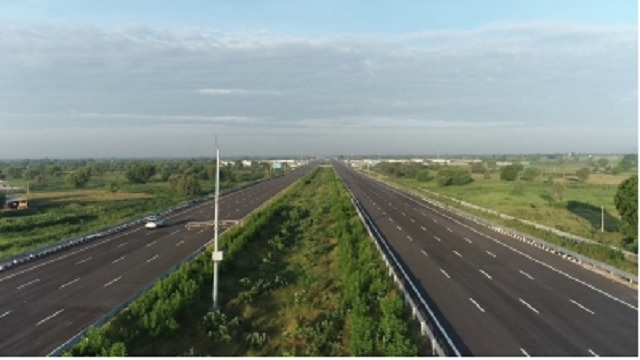NHAI Issued Notification to No Entry of Slow-moving Vehicles on Delhi-Mumbai Expressway
National Highways Authority of India has barred the entry of such vehicles on the recently launched section of the Delhi-Mumbai Expressway.
New Delhi: Keeping in view of the fact that the movement of high speed vehicles may pose risk to the safety of certain classes of comparatively slow moving vehicles, the National Highways Authority of India (NHAI) has barred the entry of such vehicles on the recently launched section of the Delhi-Mumbai Expressway.
Two-wheelers, including motorcycles and scooters, three-wheelers, non-motorised vehicles, and tractors with or without trailers have been barred from entry onto the newly launched phase 1 of the Delhi-Mumbai expressway.
NHAI has issued a gazette notification on this saying that the movement of high-speed vehicles may pose risk to the safety of certain classes of comparatively slow-moving vehicles.
“The movement of high speed vehicles may pose risk to the safety of certain classes of comparatively slow moving vehicles e.g. two wheelers, three wheelers and other slow moving vehicles like non-motorised vehicles, agricultural tractors (with or without trailers) due to their vulnerability and associated speed differentials and compromise the road safety aspects,” it said.
The notification said that this expressway was developed as a high-speed corridor and the maximum speed limits for motor vehicles of various descriptions for the expressway have been notified, varying between 80 km/hour to 120 km/hour.
The notification also said that there have been and are alternative routes and roads available to the public for linking the places/accessing various destination points before the development of this expressway.
The first completed section of the Delhi Mumbai Expressway, Delhi – Dausa – Lalsot, was dedicated to the nation by Prime Minister Narendra Modi on February 12.
The 246 km Delhi – Dausa – Lalsot section of the Delhi Mumbai Expressway has been developed at a cost of more than Rs 12,150 crore.
The Delhi Mumbai Expressway will be India’s longest expressway with a length of 1,386 km.
It will reduce travel distance between Delhi and Mumbai by 12 per cent from 1,424 km to 1,242 km and travel time will be reduced by 50 per cent from 24 hrs to 12 hrs. It will pass through the six states of Delhi, Haryana, Rajasthan, Madhya Pradesh, Gujarat and Maharashtra and connect major cities like Kota, Indore, Jaipur, Bhopal, Vadodara and Surat.
The Expressway will also serve 93 PM Gati Shakti Economic Nodes, 13 ports, 8 major airports and 8 multi-modal logistics parks (MMLPs) along with spurs to new upcoming greenfield airports such as Jewar Airport, Navi Mumbai Airport and JNPT port.
(IANS)




 Ms Kalinga
Ms Kalinga